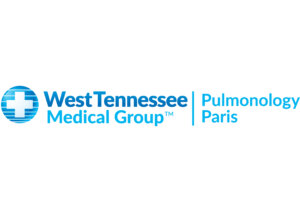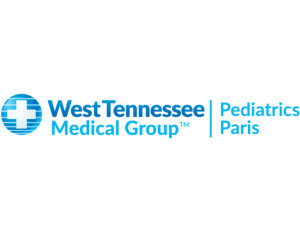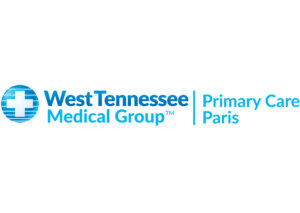
PARIS, TN – A year ago, the U.S. business sector suffered a 17% increase in data breaches, often leading to significant financial losses. For hospitals, cybersecurity focuses on protecting patient data among other information, and Pam Ridley heads up the cybersecurity effort at Henry County Medical Center.
Ridley, the Chief Information Officer at HCMC, notes that most breaches are the result of human errors, whether it’s failing to install a software patch or employees clicking on malicious links. As part of Cybersecurity Month, Ridley is providing some simple tips to help other organizations shore up their data security efforts:
- Treat business information as personal information. Business information typically includes a mix of personal and proprietary data. While you may think of trade secrets and company credit accounts, it also includes employee personally identifiable information (PII) through tax forms and payroll accounts. Do not share PII with unknown parties or over unsecured networks.
- Don’t make passwords easy to guess. As “smart” or data-driven technology evolves, it is important to remember that security measures only work if used correctly by employees. Smart technology runs on data, meaning devices such as smartphones, laptop computers, wireless printers, and other devices are constantly exchanging data to complete tasks. Take proper security precautions and ensure correct configuration to wireless devices in order to prevent data breaches.
- Be up to date. Keep your software updated to the latest version available. Maintain your security settings to keeping your information safe by turning on automatic updates so you don’t have to think about it and set your security software to run regular scans.
- Social media is part of the fraud toolset. By searching Google and scanning your organization’s social media sites, cybercriminals can gather information about your partners and vendors, as well as human resources and financial departments. Employees should avoid oversharing on social media and should not conduct official business, exchange payment, or share PII on social media platforms.
- It only takes one time. Data breaches do not typically happen when a cybercriminal has hacked into an organization’s infrastructure. Many data breaches can be traced back to a single security vulnerability, phishing attempt, or instance of accidental exposure. Be wary of unusual sources, do not click on unknown links, and delete suspicious messages immediately.
Phishing attacks use email or malicious websites to infect your machine with malware and viruses in order to collect personal and financial information. Cybercriminals attempt to lure users to click on a link or open an attachment that infects their computers, creating vulnerability to attacks. Phishing emails may appear to come from a real financial institution, e-commerce site, government agency, or any other service, business, or individual. The email may also request personal information such as account numbers, passwords, or Social Security numbers. When users respond with the information or click on a link, attackers use it to access users’ accounts.
Here are some simple tips to avoid phishing:
- Play hard to get with strangers. Links in email and online posts are often the way cybercriminals compromise your computer. If you’re unsure who an email is from—even if the details appear accurate—do not respond, and do not click on any links or attachments found in that email. Be cautious of generic greetings such as “Hello Bank Customer,” as these are often signs of phishing attempts. If you are concerned about the legitimacy of an email, call the company directly.
- Think before you act. Be wary of communications that implore you to act immediately. Many phishing emails attempt to create a sense of urgency, causing the recipient to fear their account or information is in jeopardy. If you receive a suspicious email that appears to be from someone you know, reach out to that person directly on a separate secure platform. If the email comes from an organization but still looks “phishy,” reach out to them via customer service to verify the communication.
- Protect your personal information. If people contacting you have key details from your life—your job title, multiple email addresses, full name, and more that you may have published online somewhere—they can attempt a direct
spear-phishing attack on you. Cyber criminals can also use social engineering with these details to try to manipulate you into skipping normal security protocols.
- Be wary of hyperlinks. Avoid clicking on hyperlinks in emails and hover over links to verify authenticity. Also ensure that URLs begin with “https.” The “s” indicates encryption is enabled to protect users’ information.
- Double your login protection. Enable multi-factor authentication (MFA) to ensure that the only person who has access to your account is you. Use it for email, banking, social media, and any other service that requires logging in. If MFA is an option, enable it by using a trusted mobile device, such as your smartphone, an authenticator app, or a secure token—a small physical device that can hook onto your key ring.
- Install and update anti-virus software. Make sure all of your computers, Internet of Things devices, phones, and tablets are equipped with regularly updated antivirus software, firewalls, email filters, and anti-spyware.
For more information about HCMC and our safety measure to secure your information, check out our website at www.hcmc-tn.org
About Henry County Medical Center
Located in Paris, TN, Henry County Medical Center is a progressive, integrated healthcare organization committed to serving the healthcare needs of Henry County and the adjoining region. Including a 142-bed hospital and other facilities, the medical center provides a variety of outpatient services, as well as inpatient care. Henry County Medical Center is a county-owned and operated nonprofit institution. For more information: http://www.hcmc-tn.org.









